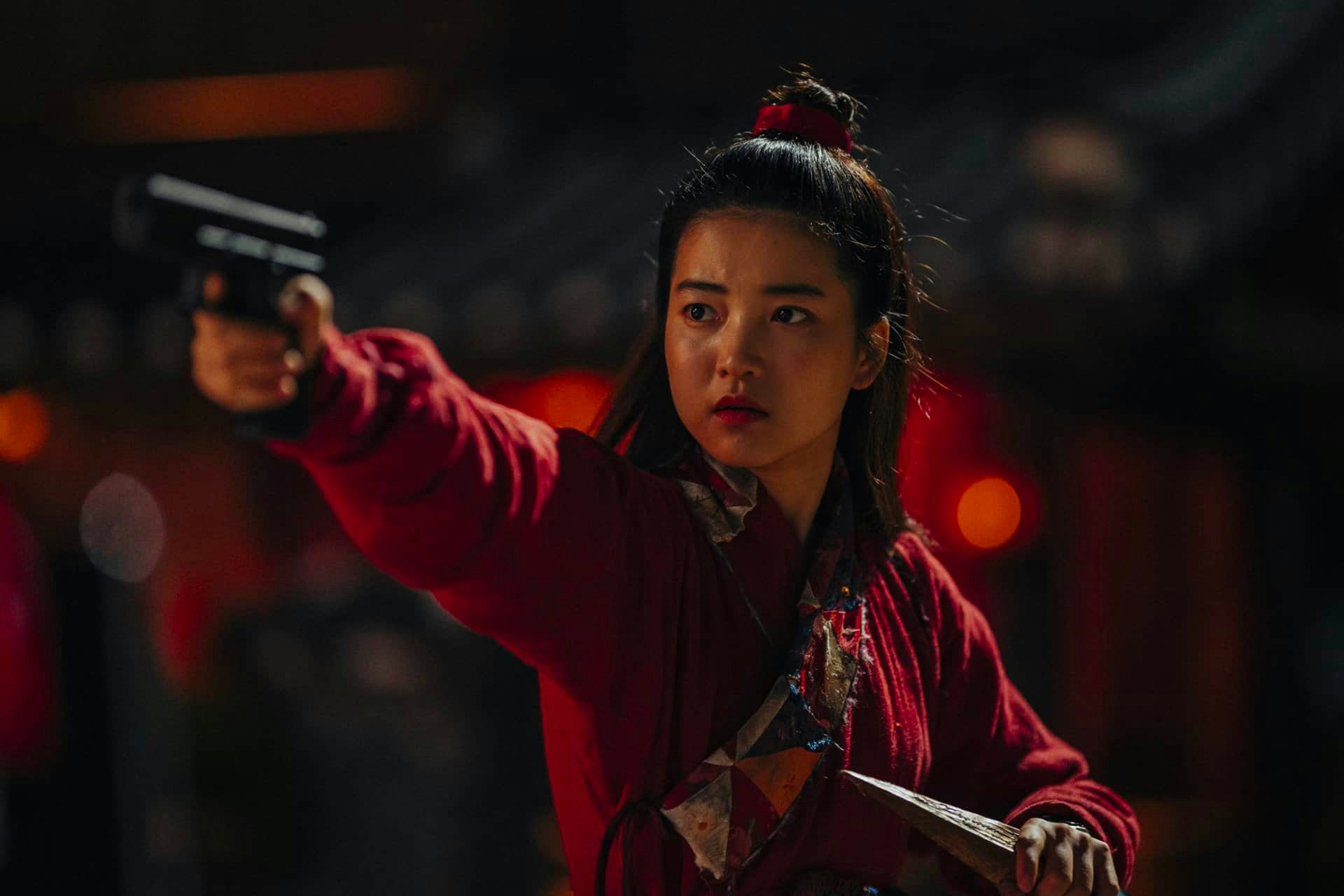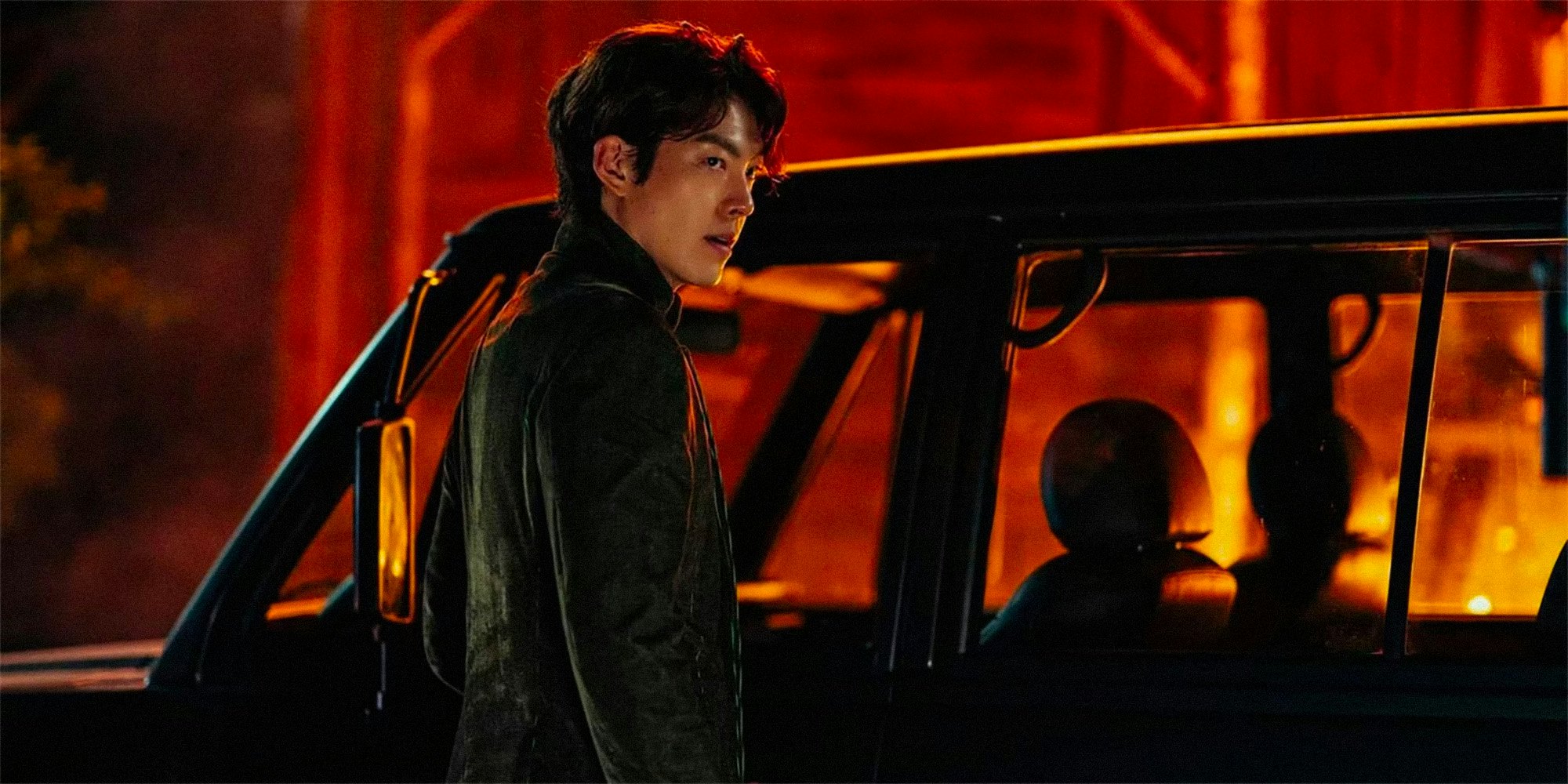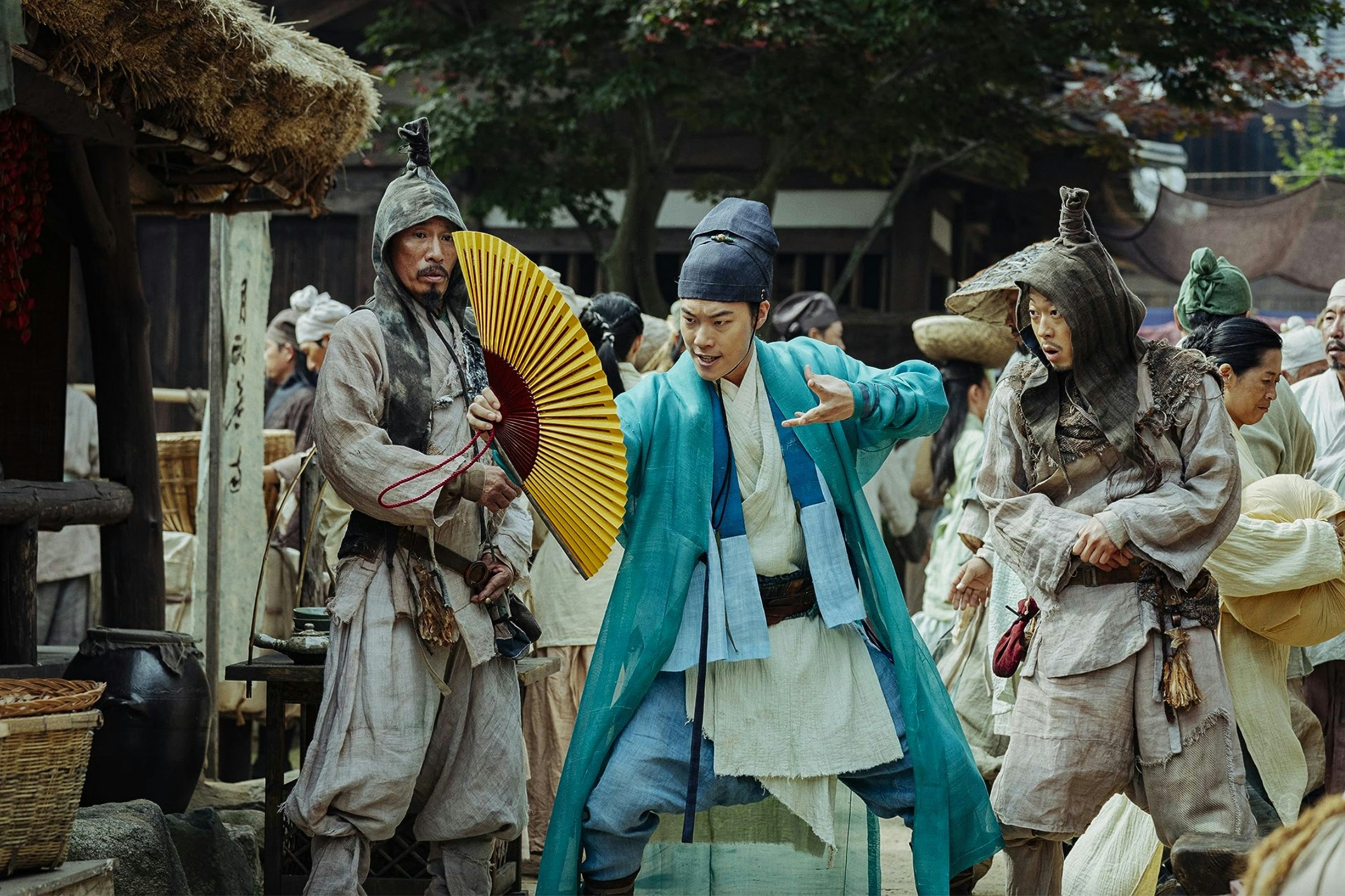
We’re living through a summer chock full of epic two-part releases. From sprawling animated odysseys to vehicular family dramas, 2023 has singlehandedly made cliffhangers cool again. In some cases, a two-parter can be really satisfying — but in others, it just seems like a clever way to release the same movie twice. Very rarely do the ends justify the means, but there’s always an exception to the rule.
Alienoid is one of the few epics that earns its two-chapter split. It’s essentially two films conjoined by one big-brained sci-fi conspiracy: it straddles two very different eras to bring Taoist magic and alien/robot battles into one time stream. It’s like Kung Fu Hustle, Men in Black, and Transformers had a tonally dissonant baby. And on paper, there’s no way any of that should work. Director Choi Dong-hoon is working hard to create a fitting tribute to the stories that defined an era. He doesn’t want to settle between wuxia hijinks, a covert alien invasion, and Western sci-fi sensibilities — but when the action is this slick and the cast this committed, he doesn’t really have to.
Choi is no stranger to genre mixing. He’s spent the last few years churning out hit after hit for South Korea, from fish-out-of-water folktales to grounded political thrillers. Alienoid feels like the culmination of all his previous work, and he wastes little time bringing all these disparate elements together in his latest.
It all begins in the 1300s when a robot named Guard (Kim Woo-bin) crash-lands from a portal in the sky. He’s hunting down a “breakout,” an alien prisoner trapped in a human body. The nameless species he serves have turned our world into a purgatory for their kind. Though they’re averse to murder, they have zero problem shoving their worst criminals into the bodies of unsuspecting humans. These alien convicts are dispersed all throughout our timeline. Occasionally, though, they manage to escape their fleshy prisons, but they can’t survive on Earth without a human host.
It falls to Guard and his talking car, Thunder, to round up these unwieldy aliens and ensure that none escape. They’re largely successful, but their latest mission results in a casualty that sees Guard adopting a human child, Ean. He and Thunder bring this child from the 14th century to raise her in present-day South Korea; as she comes of age, she begins to suspect that her stoic single dad has a less-than-conventional job.

Guard, Thunder, and Ean eventually find themselves at the center of an alien uprising — and their journey is compelling enough on its own, but there’s also a whole other storyline wedged in between their present-day troubles. Back in 1391, a bounty-hunting wizard called Muruk is on the hunt for the Divine Blade, a talisman that enables time travel, among other things. But he’s not the only interested party: there’s also the shady shaman Jajang, an alien assassin from the future, a pompous pair of mages, and a mysterious girl with a pistol.
It’s impossible to explain just how weird Alienoid actually gets from here, but each colorful character helps to breathe life into the film’s seemingly random threads. When their paths eventually collide in a final showdown, it all actually makes sense — and while Alienoid does end on an abrupt cliffhanger, it’s the kind that ensures you’ll be back for Part 2.
Choi somehow manages to keep this first installment from feeling like half of a really long film. To call Alienoid ambitious would be a total understatement: the sheer volume of ideas on display could have easily padded out a 20-episode K-drama. That Choi is able to balance so much — and achieve some gleeful, high-concept sci-fi in the process — is as much a testament to his skill as it is to his team’s commitment.

In anyone else’s hands, this blend of slapstick, science, and fantasy would read more like a failed parody. Alienoid is the very definition of two worlds colliding — and at times, it dips into the sensory overload that made Everything Everywhere All At Once such an overwhelming watch. But it understands what made that story so compelling, too.
Despite such an otherworldly premise, Alienoid maintains a surprisingly human feel. The Stephen Chow-inspired humor never undermines the straight-faced stakes, and that has everything to do with the performances on display. It’s hard not to feel endeared to this weird and wonderful cast. There’s an unmistakable charm that keeps everything afloat — sure, it’s overstuffed, but Alienoid is still a hard story to forget. It might be the best justification for a two-part film in recent memory.







